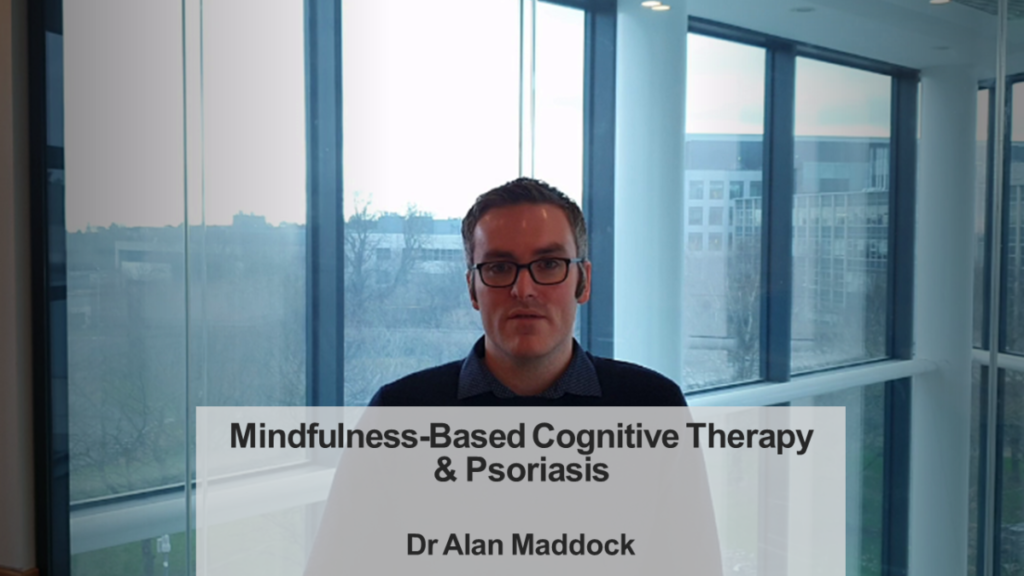COVID-19 dermatology registries*, Global Skin townhall webinar May 21

The International Alliance of Dermatology Patient Organisations (IADPO) also known as Global Skin, of which the ISF is a founding member, convened a webinar titled: Understanding COVID-19 & its impacts on dermatology patients. Representatives from patient organisations around the world attended this live ‘townhall’ style meeting which hosted an excellent presentation by Dr Esther Freeman, […]
Research Call for Hidradenitis Suppurativa (HS) Everyday Wound Care User Study

June 1st – 7th marks Hidradenitis Suppurativa (HS) Awareness Week globally, and is an opportunity to raise awareness of this inflammatory skin condition, estimated to affect at least 1% of the Irish population. The Clinical Research Platform is currently recruiting people living with Hidradenitis Suppurativa (HS) to test a wound dressing product specifically designed for use in that condition. […]
Irish research highlights that living with HS can have a significant impact on quality of life
HS Awareness Week June 1st – 7th marks Hidradenitis Suppurativa (HS) Awareness Week globally, and is an opportunity to raise awareness of this inflammatory skin condition, estimated to affect at least 1% of the Irish population. Irish research A recent 2020 Irish paper in Dovepress, authors Mac Mahon et al. reported on a study of […]
Is it true? Will sunlight really help my skin condition?

During spells of good weather and throughout the summer months, our ‘Ask a Nurse’ team are often shyly asked: “So what about the sun – I’ve heard that it’s really good for clearing psoriasis [or eczema]?” This is a fair question; who wouldn’t want to clear their skin in what appears to be a simple […]
Know Your Fitzpatrick Skin Type: Protect Your Skin!

Skin cancer is the most common type of cancer in Ireland and in fair/light skinned populations worldwide, for whom sunburn is a risk factor. The vast majority of these cancers are associated with overexposure to ultraviolet radiation (UV), mainly from sunlight. However, UV from artificial sources e.g. sunbeds, also cause skin cancer. Yet, the good news […]
COVID-19 Hand Care Advice

First published 6th March 2020 COVID-19 outbreak It is essential during the outbreak of COVID-19 that we follow the advice recommended by infection control experts, which highlights the importance of frequent hand washing, with soap and water, or using alcohol-based hand rub. For up-to-date health information and advice in Ireland in relation to COVID-19 please […]
New survey for psoriasis patients to self-report experiences of COVID-19

PsoProtectMe is a new initiative by PsoProtect for psoriasis patients to self-report their COVID-19 experience. The Irish Skin Foundation is delighted to be a partner of PsoProtect, an international registry for health care providers to report outcomes of COVID-19 in individuals with psoriasis. PsoProtect has released data from over 100 cases reported by clinicians globally, […]
The Importance of Emollient Treatment in Eczema

Atopic eczema is a very common, non-contagious, chronic inflammatory skin condition. While the exact cause is not known, certain factors are thought to be important in its development, these include an inherited predisposition to have a weakened skin barrier, as well as altered inflammatory and allergy responses. Atopic eczema most frequently begins in infancy but may […]
Updated frequent hand washing advice – BAD statement

Statement on frequent hand washing to reduce coronavirus risk for people with skin diseases affecting the hands The British Association of Dermatologists (BAD) makes statements on best practice, teaching, training and research in dermatology which is often followed by dermatology departments and consultants in the Republic of Ireland. This statement was last updated by the […]
The Impact of Mindfulness-Based Cognitive Therapy (MBCT) on Psoriasis

Dr Alan Maddock, lecturer at Queen’s University Belfast, discusses ‘The impact of Mindfulness-Based Cognitive Therapy on Psoriasis’. According to new data released by the Global Psoriasis Atlas, an estimated 82,900 people in Ireland live with psoriasis. As well as managing the physical symptoms of psoriasis, patients can experience a range of emotional, psychological and social […]
